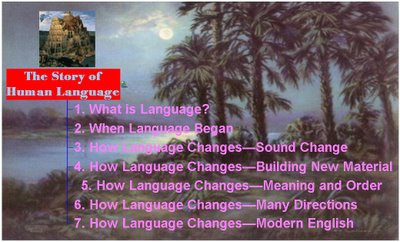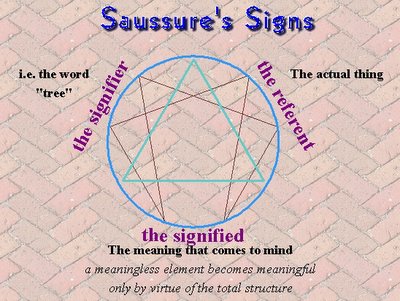Word Translations
I thought I would try and do a linked blog comment to Mushtaq’s The Problem With Translations post.
He discusses, with some interesting examples, the difficulty of translating words from other languages, from centuries ago, without knowing something of the culture of the time.
I realize, my poor language learning abilities aside, that even translating from one modern language to another modern language can introduce the “Lost in Translation” doodad.
I recently started listening to The Teaching Company’s “The History of Language” for a second time. The lecturer, John McWhorter, talks about various kinds of language “drifts” (i.e. grammar, meanings, sound modulations.) Those lectures help me understand how languages evolve over time into other languages.
The first 7 lecture titles:

I remember in one example he presented a Romeo and Juliet excerpt asking us why Juliet asks “Romeo, Romeo wherefore art thou Romeo?” Can’t she see him standing right in front of her? It turns out "wherefore" doesn’t have anything to do with “where”, but some people have started to interpret it that way.
I wondered if you could map out Ferdinand de Saussure's sign stuff on an enneagram:
And how about a run on sentence from Gurdjieff?
(From Chapter 1 of Beezlebub's Tales to his Grandson)
That is why each word, for the same thing or idea, almost always acquires for people of different geographical locality and race a very definite and entirely different so to say "inner content."
In other words, if in the entirety of any man who has arisen and been formed in any locality, from the results of the specific local influences and impressions a certain "form" has been composed, and this form evokes in him by association the sensation of a definite "inner content," and consequently of a definite picturing or notion for the expression of which he employs one or another word which has eventually become habitual, and as I have said, subjective to him, then the hearer of that word, in whose being, owing to different conditions of his arising and growth, there has been formed concerning the given word a form of a different "inner content," will always perceive and of course infallibly understand that same word in quite another sense.


1 Comments:
Donna, I really enjoy learning about linguistics. It helps to answer a lot of questions I have concerning barriers to adult human development, especially in myself.
Post a Comment
<< Home